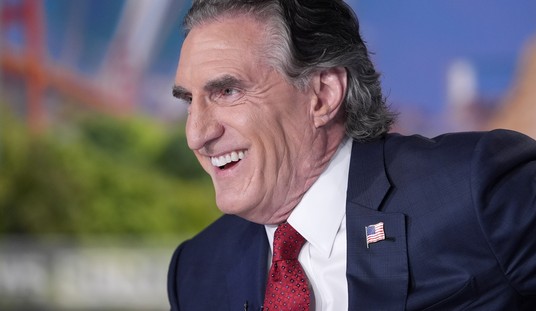We’ve had a few discussions here in the past about sports franchise stadiums and the relative wisdom (or lack thereof) of taxpayers footing the bill for these billion dollar ventures to “relieve the burden” on the billionaire owners and millionaire players they hope to attract to their city. It tends to wind up being a losing proposition for most of them, but in the end it’s a decision that the voters will have to live with. Unless, of course, you live in or around St. Louis, in which case a judge has conveniently removed the decision from their hands. (St. Louis Today)
The construction of a riverfront football stadium does not need voter approval in the city before using city tax dollars, a judge ruled on Monday.
St. Louis Circuit Court Judge Thomas Frawley declared invalid the city ordinance requiring a public vote. Moreover, Frawley ruled, the placement of the new stadium, along the riverfront just north of downtown, does not break a state law requiring the building to be “adjacent” to the convention center — it is close enough, he wrote.
“‘Adjacent’ has commonly been interpreted by Missouri courts to mean ‘near or close at hand and as ‘not necessarily meaning contiguous,’” Frawley wrote in his ruling, “i.e. not necessarily meaning touching each other or immediately next to each other.”
There’s a lot to unpack in a short space there. The Rams need a new stadium and are currently being wooed to go back to California, so there’s a bit of a bidding war going on. It’s going to take a load of cash to put up the new facility and, as usual, the taxpayers are being asked to foot part of the bill. The first glaring alarm in this story is that the city actually had an ordinance on the books which was supposed to make sure that the voters would have a chance to decide for themselves. The judge has simply set it aside.
Even more strange is that there are other rules on the books which would specifically regulate such a project. Their state law which states that a stadium must be “adjacent to the convention center” is rather odd sounding, but apparently they want to channel all the tourism and traffic into a more easily manageable area. But whether you agree with the original rationale or not, the law is the law. And now this same judge has determined that the word “adjacent” is rather ambiguous and the designated location is… close enough to adjacent.
Hmmm… okay then.
The Show-Me State called on an expert from the Show-Me Institute, Joe Miller, to comment on how great of a deal this would be for the locals. (Inside St. Louis)
“Football stadium…the public shouldn’t be funding it. If the NFL wants to pay for a new stadium…If the Rams ownership wants to stay in St. Louis, they should pay for it themselves. There’s plenty of economic evidence out there that shows stadiums really don’t create any tangible economic benefit. They don’t increase tax revenue, they don’t create economic growth and they don’t create urban revitalization. There might be civic pride arguments…but we think definitely people should get a vote on it.”
“I don’t think it’s better for St. Louis not to have the Rams. I’m trying to say that when the public spends hundreds of millions of dollars for a sports stadium in hopes it’s going to boost economic growth, I think they’re being sold a bad bill of goods. It’s a low probability.”
I’m not sure if any NFL teams have stadiums which have turned out to be a great deal for the taxpayers aside from the Green Bay Packers. The Buffalo Bills have been going through several iterations of the same questions and it’s a rather fierce debate. Plenty of locals are of a mind that losing the team would be a huge blow to the city economy, but that’s pretty hard to quantify. I do agree that it would be a big loss to city morale and the general mood of the fans. The same can be said for most other towns with a long standing franchise.
Perhaps that’s enough to justify the cost even if it’s a net loss financially. There’s something to be said for hometown spirit. But be that as it may, the citizens should have the right to make that call and then sink or swim with the resulting fallout. Having a judge remove the choice seems beyond the pale, and I hope St. Louis can figure out a way to reverse that decision.








Join the conversation as a VIP Member